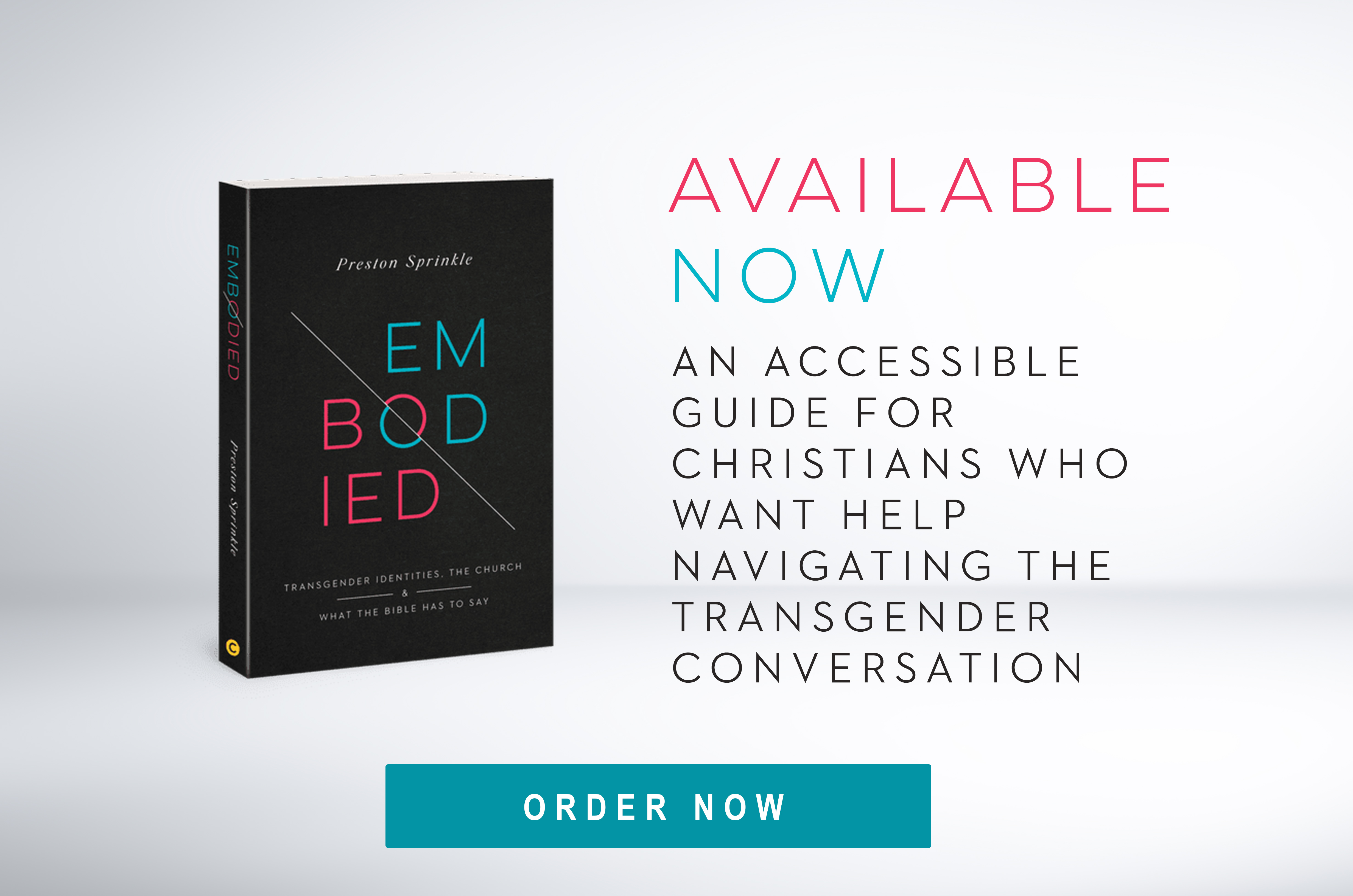
By Andrew Bunt. Andrew is an assistant pastor and a part of the team at Living Out. He’s the author of ‘People Not Pronouns: Reflections on Transgender Experience’ and is a regular contributor at Think.
To my great distress, I recently discovered that I am incomplete!
Apparently, spouses should be able to look at each other in the face and say, ‘You complete me.’ Apparently, Adam was incomplete before he was united with Eve. Apparently, there might somewhere be another half of me – my ‘other half’. That’s news to me![1] The only logical implication is that I, a single man, am incomplete. And since it doesn’t seem likely that I’m going to get married, I guess I’m destined always to be incomplete.
To be honest, I don’t much like the idea that I might be incomplete and destined always to be incomplete. Living as a partial person doesn’t sound like much fun. But then again, what I like doesn’t really matter. What matters is what’s true. Is it true that I – and that all single people – are in some way incomplete? I don’t think it is.
Buy Now!
Embodied: The Latest from Preston Sprinkle
Incomplete Adam?
Let’s first think about Adam. Was Adam incomplete before he was united with Eve? Did God create Eve to complete Adam, woman to complete man? That doesn’t seem to be what Genesis 2 reveals.
When God creates Adam and puts him in the garden to work and to keep it, he looks at him and notices a problem. But the problem isn’t that he is incomplete, it’s that he’s alone (Genesis 2:18). There’s no indication that he was a partial person who was alone. He’s a complete person, but one who nevertheless is alone, and that aloneness was the problem.
What was the problem with that aloneness? Well, Genesis 2 would seem to suggest it was more of a practical problem than we might tend to assume. I think we see that in what God creates for Adam. He doesn’t create another part of himself to complete him. He doesn’t even create another person who is primarily a companion. He creates ‘a helper fit for him’ (Genesis 2:20).
A helper is there to partner and assist with something – to allow a certain task to be completed. And that task is the commission given to Adam to work and keep the garden (Genesis 2:15), which is another way of expressing the Genesis 1 commission to ‘have dominion over the fish of the sea and over the birds of the heavens and over the livestock and over all the earth and over every creeping thing that creeps on the earth’ (Genesis 1:26).
Humanity was given the charge to rule over the earth and all that fills it, but one lone human couldn’t do that. To fulfil that charge, there would need to be more humans. One lone man couldn’t make that happen either. So, a helper was provided to start the process of filling God’s creation with the humanity that would be able to fulfil the commission God had given. Together, Adam and Eve were able to form a community that would grow, with each person bringing their own strengths and abilities to help them to together fulfil God’s commission.
So, Adam wasn’t incomplete in his person. But he did need the help of others.
Incomplete Jesus?
And now let’s think about Jesus. Jesus never married. Jesus never had sex. Does that mean he was incomplete? Was Jesus only a partial person?
I hope not, because if Jesus wasn’t a complete person, he can’t redeem complete people. Jesus had to be like us in every way so that he might complete his mission of redemption (Hebrews 4:16). Jesus must have been a complete person, even if he didn’t have a spouse.
Jesus wasn’t incomplete in his person. But interestingly, he too, like Adam, needed the help of others. As one who is both fully God and fully human, Jesus had need of the help of others, just as all humans do. We see this in his time of anguish in the garden of Gethsemane. Facing something unimaginably horrific, Jesus knew he needed the help of others alongside him, and so he asked his closest friends to be near him and to pray (Mark 14:33-34). Jesus wasn’t incomplete, but he did need the help of others.
Incomplete me?
So, am I incomplete? No.
I am a complete person, right now, even as a single, celibate guy. That doesn’t mean I don’t need others – like Adam, and like Jesus, I certainly do – but it does mean I don’t have to get married to find completeness.
[1] These statements are made in Steven Wedgeworth, ‘Your Spouse Should Complete You: What It Means to Become One’, Desiring God. As it happens, I think there’s much in the article that’s good, but this particular point is particularly unhelpful and particularly wrong.

